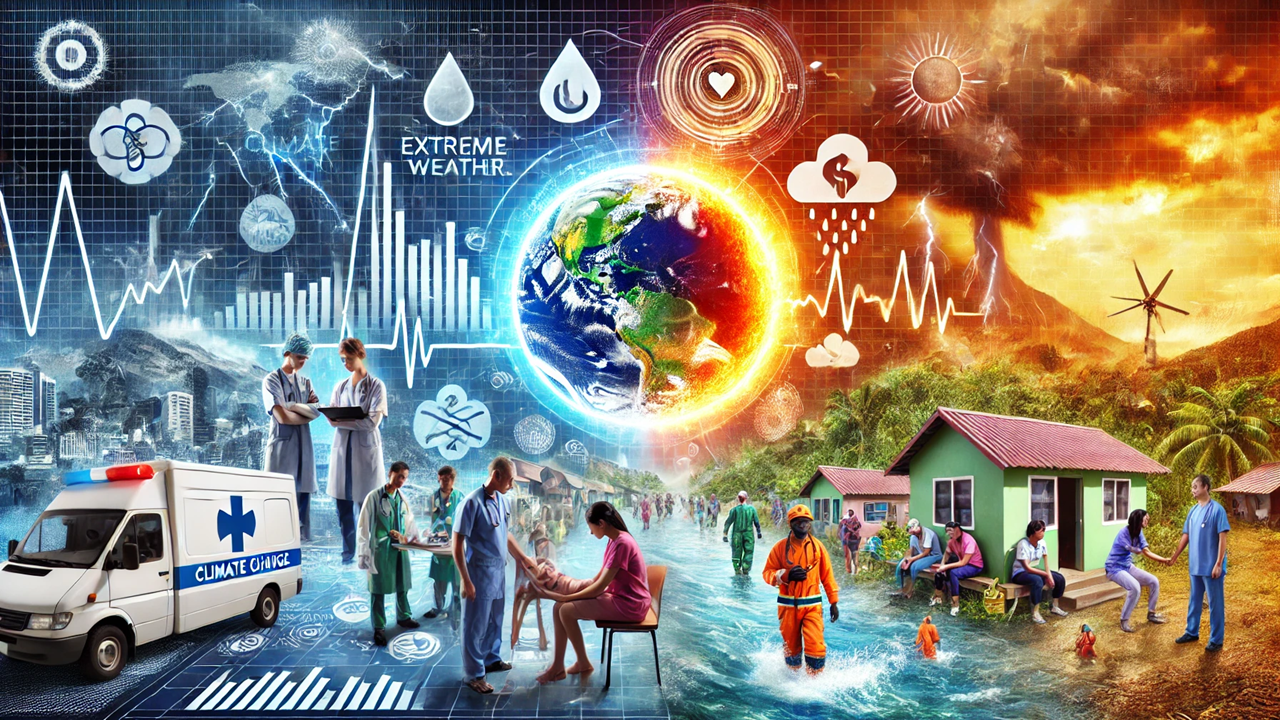Unveiling the Hidden Costs: Climate Change and Health in Low-Income Nations
A new report reveals the profound health and economic costs of climate change in low-income countries. It highlights rising disease burdens, escalating healthcare expenses, and the urgency of integrating climate resilience into health systems to mitigate future risks.

The Cost of Inaction: Quantifying the Impact of Climate Change on Health in Low- and Middle-Income Countries, a pivotal report, sheds light on a silent crisis brewing at the intersection of climate change and public health. Published by the World Bank, the report underscores the urgent need to tackle climate-induced health risks before they spiral into unmanageable economic and social disasters.
Climate Change: A Growing Threat to Public Health
The report’s findings highlight the disproportionate impact of climate change on low- and middle-income countries, where vulnerable populations are already grappling with fragile healthcare systems. Climate-sensitive diseases, such as malaria, diarrhea, and heat-related illnesses, are on the rise as temperatures soar and weather patterns become increasingly erratic. Extreme weather events, from hurricanes to prolonged droughts, further exacerbate these health crises, pushing already overstretched healthcare systems to their limits.
Economic Costs of Inaction
Beyond the immediate health consequences, the financial implications of ignoring climate-related health risks are staggering. The report provides detailed estimates of the economic losses incurred due to disease burdens, healthcare costs, and decreased productivity. It argues that investing in climate resilience is not only a moral imperative but also a cost-effective strategy to avert long-term economic losses. Every dollar spent on mitigation and adaptation today could save exponentially more in future health expenditures.
A Roadmap for Action
To address these challenges, the report lays out a comprehensive framework for integrating climate resilience into health systems. This includes bolstering infrastructure, enhancing disease surveillance, and implementing early warning systems to prepare for climate-induced health emergencies. It also emphasizes the importance of prioritizing vulnerable communities in these interventions, ensuring that no one is left behind in the fight against climate change.
Why Urgency Matters
Time is of the essence. As the report warns, the costs of inaction are rising exponentially, both in human and economic terms. Delaying action risks locking in catastrophic health outcomes and overwhelming healthcare systems in low- and middle-income countries.
The Cost of Inaction, published by the World Bank, serves as a clarion call for policymakers, healthcare professionals, and climate advocates. It reminds us that addressing climate change is not just an environmental issue but a critical public health priority that requires immediate and coordinated action.
- FIRST PUBLISHED IN:
- Devdiscourse










